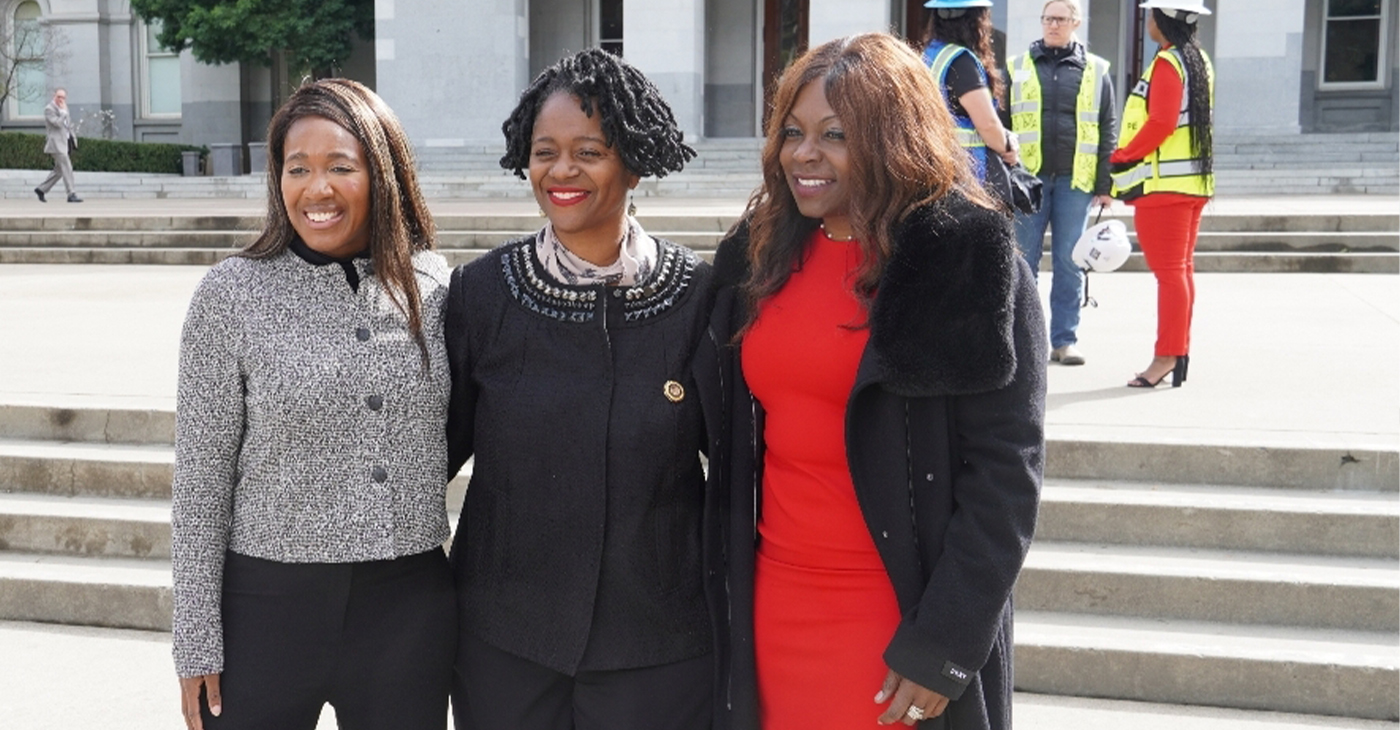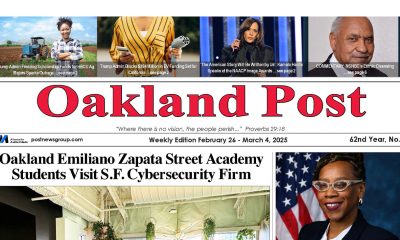National
Ferguson Increased Revenue by Targeting Blacks
By Freddie Allen
NNPA Senior Washington Correspondent
WASHINGTON (NNPA) – The Justice Department’s recent investigation of the Ferguson, Mo. Police Department not only revealed widespread racism in its operation, but described how poor Blacks were targeted to boost the sagging revenues of small municipalities.
“Ferguson police officers issued nearly 50 percent more citations in the last year than they did in 2010 – an increase that has not been driven, or even accompanied, by a rise in crime,” Attorney General Eric H. Holder said at a press conference to release finding of its investigation of Ferguson. “Along with taxes and other revenue streams, in 2010, the city collected over $1.3 million in fines and fees collected by the court. For fiscal year 2015, Ferguson’s city budget anticipates fine revenues to exceed $3 million – more than double the total from just five years prior.”
Holder said that Ferguson police officers were pressured to deliver on those revenue goals, some even competed to see who could write the most citations in a single stop.
“Once the system is primed for maximizing revenue – starting with fines and fine- enforcement – the city relies on the police force to serve, essentially, as a collection agency for the municipal court rather than a law enforcement entity,” Holder explained.
He told the story of one woman, who received two parking tickets in 2007 for $152 and has paid more than $500 in fines and fees to Ferguson. She was arrested twice for failure to pay tickets and even spent time in jail and she still owes Ferguson $541.
Beyond the compounding fines and frequent traffic stops, Ferguson police, charged with upholding the law, ran roughshod all over it, routinely violated the civil rights of African American residents.
Holder said that the Justice Department’s investigation found “a community where deep distrust and hostility often characterized interactions between police and area residents.”
He said that the Justice Department’s investigation showed that Ferguson police officers “routinely violate the Fourth Amendment in stopping people without reasonable suspicion, arresting them without probable cause, and using unreasonable force against them. According to the Police Department’s own records, its officers frequently infringe on residents’ First Amendment rights.”
Holder added: “And even in cases where police encounters start off as constitutionally defensible, we found that they frequently and rapidly escalate – and end up blatantly and unnecessarily crossing the line.”
Holder recounted a 2012 arrest in which a Ferguson police officer approached a 32-year-old African American man while he sat in his car after playing basketball at a park.
“The car’s windows appeared to be more heavily tinted than Ferguson’s code allowed, so the officer did have legitimate grounds to question him,” said Holder. “But, with no apparent justification, the officer proceeded to accuse the man of being a pedophile. He prohibited the man from using his cell phone and ordered him out of his car for a pat-down search, even though he had no reason to suspect that the man was armed. And when the man objected – citing his constitutional rights – the police officer drew his service weapon, pointed it at the man’s head, and arrested him on eight different counts. The arrest caused the man to lose his job.”
These types of incidents were anything but isolated, according to Holder.
Even though Blacks account for 67 percent of the population in Ferguson, they comprised more than 85 percent of the traffic stops, between October 2012 and October 2014. Once they were stopped, Blacks were twice as likely to be searched than Whites, but 26 percent less likely to possess contraband or illegal substances.
Nearly 90 percent of the incidents where police officers used force involved Blacks, and in all 14 uses of force involving a canine bite in which the race of the person bitten was reported, the person was African American. Between October 2012 and July 2014.
“This deeply alarming statistic points to one of the most pernicious aspects of the conduct our investigation uncovered: that these policing practices disproportionately harm African American residents,” said Holder. “In fact, our review of the evidence found no alternative explanation for the disproportionate impact on African American residents other than implicit and explicit racial bias.”
Even though city officials and Ferguson Police Department (FPD) officers attributed the individual experiences of residents trapped in the maze of the municipal enforcement system to a lack of personal responsibility, they seemed to ignore the gaps in their own professional accountability to the system.
The Justice Department reported that, Ferguson police omitted critical information from the citations, making it impossible for a person to know what offense they are being charged for, “the amount of the fine owed, or whether a court appearance is required or some alternative method of payment is available,” the report said.
“In some cases, citations fail to indicate the offense charged altogether; in November 2013, for instance, court staff wrote FPD patrol to ‘see what [a] ticket was for’ because ‘it does not have a charge on it.’ In other cases, a ticket will indicate a charge, but omit other crucial information. For example, speeding tickets often fail to indicate the alleged speed observed, even though both the fine owed and whether a court appearance is mandatory depends upon the specific speed alleged.”
Not only did Ferguson police officers submit incomplete citations they also gave people the wrong dates and times for court appearances, increasing the likelihood that they would face additional fines for failing to appear at the correct time.
“It is often difficult for an individual who receives a municipal citation or summons in Ferguson to know how much is owed, where and how to pay the ticket, what the options for payment are, what rights the individual has, and what the consequences are for various actions or oversights,” said the report. “The initial information provided to people who are cited for violating Ferguson’s municipal code is often incomplete or inconsistent. Communication with municipal court defendants is haphazard and known by the court to be unreliable. And the court’s procedures and operations are ambiguous, are not written down, and are not transparent or even available to the public on the court’s website or elsewhere.”
The Justice Department recommended that Ferguson implement a robust system of community policing, prohibit the use of formal or informal ticketing and arrest quotas, and encourage de-escalation and the use of minimal force necessary. The department also recommended that police officers seek supervisory approval before issuing multiple citations and making arrests in certain cases.
In the wake of the report, two Ferguson police officers were forced to resign. The fate of Tom Jackson, the chief of police, is still uncertain.
Holder said that dialogue, by itself, will not be sufficient to address these issues, because concrete action is needed. However, initiating a broad, frank, and inclusive conversation is a necessary and productive first step.
“It is time for Ferguson’s leaders to take immediate, wholesale and structural corrective action,” Holder said. “Let me be clear: the United States Department of Justice reserves all its rights and abilities to force compliance and implement basic change.”
###
Activism
Oakland Post: Week of March 28 – April 1, 2025
The printed Weekly Edition of the Oakland Post: Week of March 28 – April 1, 2025

To enlarge your view of this issue, use the slider, magnifying glass icon or full page icon in the lower right corner of the browser window.
Activism
Sen. Lola Smallwood-Cuevas Honors California Women in Construction with State Proclamation, Policy Ideas
“Women play an important role in building our communities, yet they remain vastly underrepresented in the construction industry,” Smallwood-Cuevas stated. “This resolution not only recognizes their incredible contributions but also the need to break barriers — like gender discrimination.

By Antonio Ray Harvey, California Black Media
To honor Women in Construction Week, Sen. Lola Smallwood-Cuevas (D-Los Angeles), a member of the California Legislative Black Caucus (CLBC), introduced Senate Concurrent Resolution (SCR) 30 in the State Legislature on March 6. This resolution pays tribute to women and highlights their contributions to the building industry.
The measure designates March 2, 2025, to March 8, 2025, as Women in Construction Week in California. It passed 34-0 on the Senate floor.
“Women play an important role in building our communities, yet they remain vastly underrepresented in the construction industry,” Smallwood-Cuevas stated. “This resolution not only recognizes their incredible contributions but also the need to break barriers — like gender discrimination.
Authored by Assemblymember Liz Ortega (D-San Leandro), another bill, Assembly Concurrent Resolution (ACR) 28, also recognized women in the construction industry.
The resolution advanced out of the Assembly Committee on Rules with a 10-0 vote.
The weeklong event coincides with the National Association of Women In Construction (NAWIC) celebration that started in 1998 and has grown and expanded every year since.
The same week in front of the State Capitol, Smallwood, Lt. Gov. Eleni Kounalakis, Assemblymember Josh Hoover (R-Folsom), and Assemblymember Maggie Krell (D-Sacramento), attended a brunch organized by a local chapter of NAWIC.
Two of the guest speakers were Dr. Giovanna Brasfield, CEO of Los Angeles-based Brasfield and Associates, and Jennifer Todd, President and Founder of LMS General Contractors.
Todd is the youngest Black woman to receive a California’s Contractors State License Board (A) General Engineering license. An advocate for women of different backgrounds, Todd she said she has been a woman in construction for the last 16 years despite going through some trying times.
A graduate of Arizona State University’s’ Sandra Day O’Connor College of Law, in 2009 Todd created an apprenticeship training program, A Greener Tomorrow, designed toward the advancement of unemployed and underemployed people of color.
“I always say, ‘I love an industry that doesn’t love me back,’” Todd said. “Being young, female and minority, I am often in spaces where people don’t look like me, they don’t reflect my values, they don’t reflect my experiences, and I so persevere in spite of it all.”
According to the U.S. Bureau of Labor Statistics, only 11.2% of the construction workforce across the country are female. Overall, 87.3% of the female construction workers are White, 35.1% are Latinas, 2.1% are Asians, and 6.5% are Black women, the report reveals.
The National Association of Home Builders reported that as of 2022, the states with the largest number of women working in construction were Texas (137,000), California (135,000) and Florida (119,000). The three states alone represent 30% of all women employed in the industry.
Sen. Susan Rubio (D-Baldwin Park) and the California Legislative Women’s Caucus supported Smallwood-Cuevas’ SCR 30 and requested that more energy be poured into bringing awareness to the severe gender gap in the construction field.
“The construction trade are a proven path to a solid career. and we have an ongoing shortage, and this is a time for us to do better breaking down the barriers to help the people get into this sector,” Rubio said.
Activism
Report Offers Policies, Ideas to Improve the Workplace Experiences of Black Women in California
The “Invisible Labor, Visible Struggles: The Intersection of Race, Gender, and Workplace Equity for Black Women in California” report by the California Black Women’s Collective Empowerment Institute (CBWCEI), unveiled the findings of a December 2024 survey of 452 employed Black women across the Golden State. Three-fifths of the participants said they experienced racism or discrimination last year and 57% of the unfair treatment was related to incidents at work.

By McKenzie Jackson, California Black Media
Backed by data, a report released last month details the numerous hurdles Black women in the Golden State must overcome to effectively contribute and succeed in the workplace.
The “Invisible Labor, Visible Struggles: The Intersection of Race, Gender, and Workplace Equity for Black Women in California” report by the California Black Women’s Collective Empowerment Institute (CBWCEI), unveiled the findings of a December 2024 survey of 452 employed Black women across the Golden State. Three-fifths of the participants said they experienced racism or discrimination last year and 57% of the unfair treatment was related to incidents at work.
CBWCEI President and CEO Kellie Todd Griffin said Black women have been the backbone of communities, industries, and movements but are still overlooked, underpaid, and undervalued at work.
“The data is clear,” she explained. “Systemic racism and sexism are not just historical injustices. They are active forces shaping the workplace experiences of Black women today. This report is a call to action. it demands intentional polices, corporate accountability, and systemic changes.”
The 16-page study, conducted by the public opinion research and strategic consulting firm EVITARUS, showcases the lived workplace experiences of Black women, many who say they are stuck in the crosshairs of discrimination based on gender and race which hinders their work opportunities, advancements, and aspirations, according to the report’s authors, Todd Griffin and CBWCEI researcher Dr. Sharon Uche.
“We wanted to look at how Black women are experiencing the workplace where there are systematic barriers,” Todd Griffin told the media during a press conference co-hosted by Ethnic Media Services and California Black Media. “This report is focused on the invisible labor struggles of Black women throughout California.”
The aspects of the workplace most important to Black women, according to those surveyed, are salary or wage, benefits, and job security.
However, only 21% of the survey’s respondents felt they had strong chances for career advancement into the executive or senior leadership ranks in California’s job market; 49% felt passed over, excluded from, or marginalized at work; and 48% felt their accomplishments at work were undervalued. Thirty-eight percent said they had been thought of as the stereotypical “angry Black woman” at work, and 42% said workplace racism or discrimination effected their physical or mental health.
“These sentiments play a factor in contributing to a workplace that is unsafe and not equitable for Black women in California,” the report reads.
Most Black women said providing for their families and personal fulfillment motivated them to show up to work daily, while 38% said they were dissatisfied in their current job with salary, supervisors, and work environment being the top sources of their discontent.
When asked if they agree or disagree with a statement about their workplace 58% of Black women said they feel supported at work, while 52% said their contributions are acknowledged. Forty-nine percent said they felt empowered.
Uche said Black women are paid $54,000 annually on average — including Black single mothers, who averaged $50,000 — while White men earn an average of $90,000 each year.
“More than half of Black families in California are led by single Black women,” said Uche, who added that the pay gap between Black women and White men isn’t forecasted to close until 2121.
-

 #NNPA BlackPress4 weeks ago
#NNPA BlackPress4 weeks agoTarget Takes a Hit: $12.4 Billion Wiped Out as Boycotts Grow
-

 Activism4 weeks ago
Activism4 weeks agoUndocumented Workers Are Struggling to Feed Themselves. Slashed Budgets and New Immigration Policies Bring Fresh Challenges
-

 Activism4 weeks ago
Activism4 weeks agoOakland Post: Week of February 26 – March 4, 2025
-

 #NNPA BlackPress4 weeks ago
#NNPA BlackPress4 weeks agoBREAKING Groundbreaking Singer Angie Stone Dies in Car Accident at 63
-

 #NNPA BlackPress4 weeks ago
#NNPA BlackPress4 weeks agoNAACP Legend and Freedom Fighter Hazel Dukes Passes
-

 Arts and Culture4 weeks ago
Arts and Culture4 weeks agoBeverly Lorraine Greene: A Pioneering Architect and Symbol of Possibility and Progress
-

 #NNPA BlackPress4 weeks ago
#NNPA BlackPress4 weeks agoTrump Kicks the Ukrainian President Out of the White House
-

 #NNPA BlackPress4 weeks ago
#NNPA BlackPress4 weeks agoApple Shareholders Reject Effort to Dismantle DEI Initiatives, Approve $500 Billion U.S. Investment Plan
























































